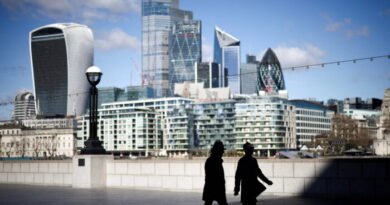Quebec Town Introduces $200 Fee for Homeowners Without Trees in Yards
In the town of St-Amable, Que., residents are faced with a new tax policy: plant a tree or pay up.
Starting this year, the municipality located 30 kilometers northeast of Montreal is enforcing an annual tax of $200 for homeowners without a leafy tree in their front yard. The goal is to combat heat islands and enhance biodiversity.
According to one public policy expert, using taxes to promote eco-friendly practices is a smart approach to addressing environmental issues. However, not all residents agree with the town’s methodology.
Jean-Sébastien Ménard, the town’s general manager, explained that the requirement for a tree in every front yard has been in place for years. However, recent mapping by Université Laval revealed the town’s vulnerability to heat waves due to the presence of heat islands—locations with buildings and concrete that raise temperatures significantly higher than their surroundings.
“It’s crucial for the well-being of our community, especially our seniors and young people, to reduce the overall temperature in St-Amable,” Ménard emphasized.
He noted that the town’s population of about 13,500 has grown rapidly over the past two decades, resulting in a decline in the number of trees. Without the cooling effect provided by greenery, heat islands can exacerbate the impact of high summer temperatures.
Ménard mentioned that the town enlisted a mobile mapping company named Jakarto to survey lawns, revealing that approximately 1,200 out of 3,000 yards lacked trees. Notices were issued, and the town organized tree sales at reduced prices to encourage compliance, resulting in most residents complying.
He disclosed that around 400 households received the $200 charge with their tax invoices this year.
Professor Fanny Tremblay-Racicot, specializing in municipal administration at Quebec’s école nationale d’administration publique, described St-Amable’s initiative as an illustration of “ecofiscality.” This term encompasses a range of public policy instruments designed to incentivize individuals to adopt eco-friendly behaviors or face financial consequences.
While St-Amable appears to be the first town to tax properties without trees, Tremblay-Racicot noted that numerous cities have implemented similar measures, such as levying fees on parking lots or requiring developers to compensate for each tree they remove. She emphasized that utilizing taxes streamlines implementation compared to conventional enforcement methods.
“When it’s a (bylaw), the city has to verify, send a ticket, enforce the regulation, and possibly go to municipal court, so it adds really significant costs,” she noted.
She lauded St-Amable’s decision to promote tree planting, citing its ability to fulfill multiple objectives. “It allows for better rainwater retention, reduces heat islands, facilitates air filtration, so we can reach several goals at once with climate solutions founded on nature,” she remarked.
Nevertheless, not all residents in St-Amable support the town’s strategy.
Sara-Kim Orobello, a property owner with two homes, recounted purchasing trees from the municipality and planting them as required. However, she discovered a $200 charge on one property when receiving her tax bill because the town alleged she hadn’t submitted a mandatory form. While the rental company she works for also received the tax for certain properties despite planting trees, she admitted that in those cases, the requisite forms were not submitted.
Despite providing city receipts confirming her tree purchases, Orobello found it challenging to reverse the charge. “I did my duty as a citizen, and I planted the tree,” she expressed, acknowledging the importance of greenery and environmental efforts but raising concerns about the treatment of compliant residents. “When we’re compliant, they shouldn’t be hounding citizens. Two hundred dollars is a grocery shop,” she added.
Simon Lacoste, a resident and former St-Amable mayor, criticized the town’s approach as “unjust and abusive.” He cited instances where residents were taxed despite having trees, while others believed they had followed the rules only to learn their trees didn’t qualify because they were categorized as shrubs.
Lacoste advocated for a more collaborative approach between the city and citizens instead of enforcing strict measures. “There’s an administrative mess surrounding this tax, which is poorly managed,” he stated. “The base policy of greening, I completely agree with, but it created injustice.”
Ménard revealed that approximately half of the 50 individuals who contested the tax successfully had it overturned, often due to oversights in the scanning software that evaluated the yards.
Despite some pushback from a small group, the majority of residents support the town’s environmental objectives, including plans to double the tree canopy and plant over 12,000 trees on public property in the upcoming years.





